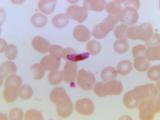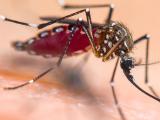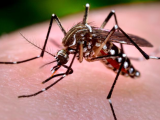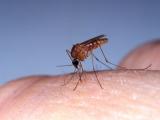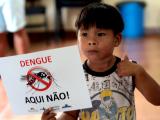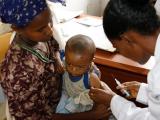Experts writing in The Lancet Infectious Diseases said a new era or arbovirus research must begin as new studies show Zika's persistence in seminal fluid and ability to trigger low platelet counts in patients.
In research developments, groups reported new findings on viral levels in the semen of infected men and more evidence for thrombocytopenia as a complication of the disease.
Vector control, vaccines to limit arbovirus disease
An international group of mosquito-borne illness experts including Duane Gubler, ScD, and David Heymann, MD, and Scott Weaver, PhD, suggest that the current Zika virus epidemic should inspire more research into arboviruses such as Zika, dengue, chikungunya, and yellow fever that have emerged as global threats. For the last half-century, mosquito-borne illness research has focused on malaria, but Zika, yellow fever, and dengue are now poised to become international threats.
"It is time for policy makers and the scientific community alike to pay more attention to the effect of urbanization and globalization on Aedes-borne viruses," the authors write. "The public health emergency of Zika virus, the threat of yellow fever, and the resurgence of dengue and chikungunya should serve as a wake-up call for governments, academia, funders, and WHO to strengthen programs and research in Aedes-transmitted diseases."
The good news, the authors said, is that the common features these diseases share should help streamline vector control and research. All of the illnesses are transmitted by the Aedes mosquito, and targeted vector-control programs against the bug will help reduce incidences of many arboviruses. According to the authors, more than 3 billion people live in Aedes-infested regions.
Vaccines will be the most important tool to fight this group of viruses, but may take years to develop.
High Zika virus counts in semen
A new study published in Emerging Infectious Diseases yesterday showed that Zika counts remain high in the semen in the majority of symptomatic men.
Researchers in the United Kingdom examined semen samples from 23 Zika-positive patients. Zika virus RNA was detected at high levels in 13 (56.5%) of the samples, undetermined in 1 sample, and not detected in 9 (39.1%) samples. Samples collected within 28 days of diagnosis had high genome copy numbers, suggesting that transmission is more likely to occur shortly after a man has been symptomatic. All positive samples showed virus clearance by 162 days post-diagnosis.
Though Zika virus is primarily mosquito-borne there have been several reports of sexual transmission in 12 countries to date. This study suggests that the current World Health Organization (WHO) guidelines that recommend men use barrier protection for 6 months after Zika exposure are likely accurate.
The authors also suggest the testing of semen from symptomatic men 2 months after leaving a Zika-affected area, is "valuable for assessing individual risk and for contributing to global data."
Low platelet counts and hemorrhaging in Zika patients
Finally, Emerging Infectious Diseases also published a study yesterday that looked at seven Zika patients in Guadeloupe who experienced severe thrombocytopenia (low platelets, associated with bleeding) after Zika infection.
The patients were admitted to Guadeloupe University Hospital, French West Indies, between May and August 2016, the height of that country's Zika outbreak. The seven patients (five women and two men, mean age 43 years) had severe thrombocytopenia (platelet count <50 × 109/L). All patients had purpura on their legs, and five of the seven patients had other signs of bleeding problems, including gingival bleeding. Testing excluded all other causes of bleeding, including dengue infection in all seven patients.
These seven patients join nine others who have developed severe thrombocytopenia during the current Zika epidemic. Though rare, thrombocytopenia is a serious complication of Zika virus infection.
See also:
Dec 21 Lancet Infect Dis commentary
Dec 20 Emerg Infect Dis UK study
Dec 20 Emerg Infect Dis Guadeloupe study


